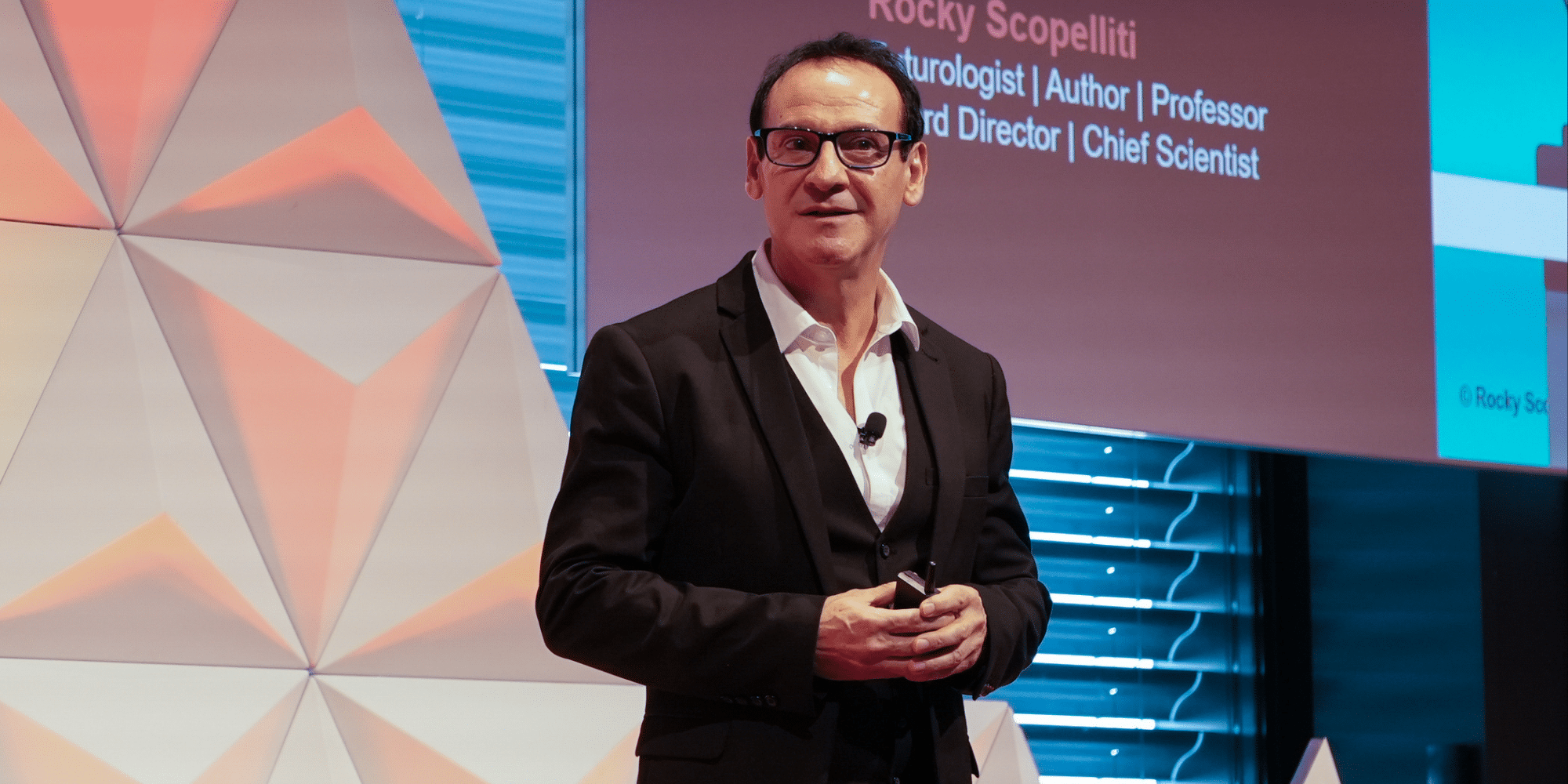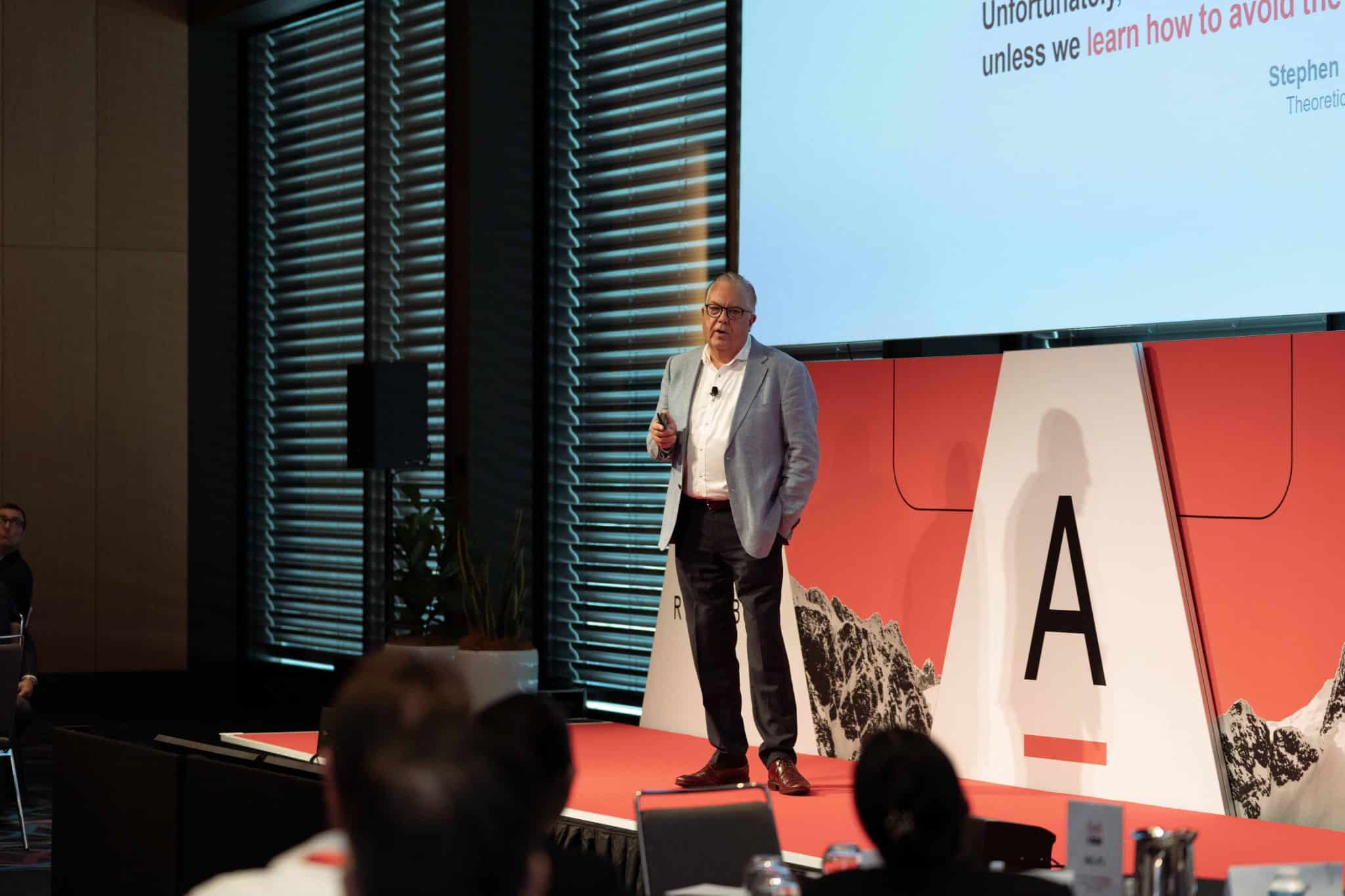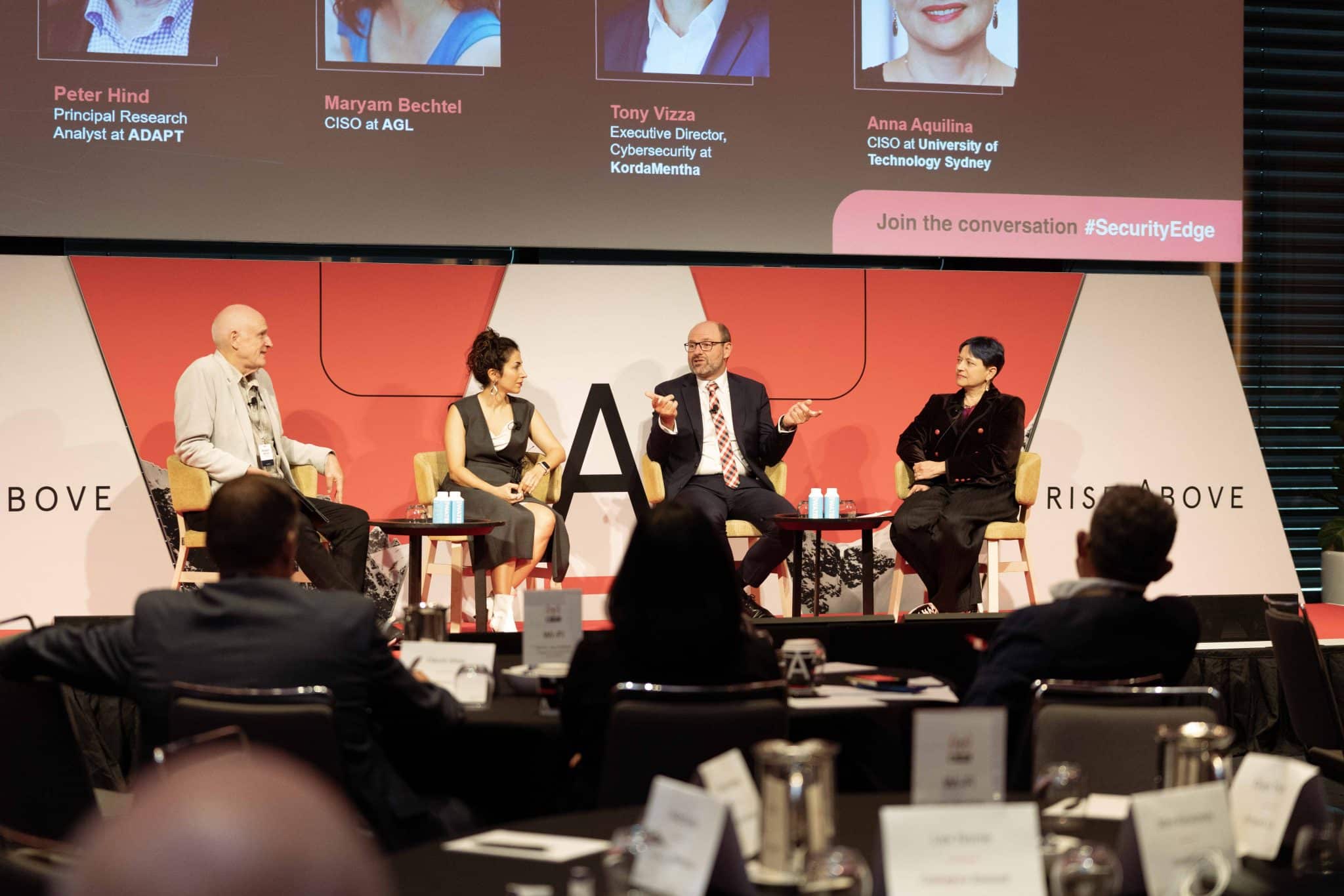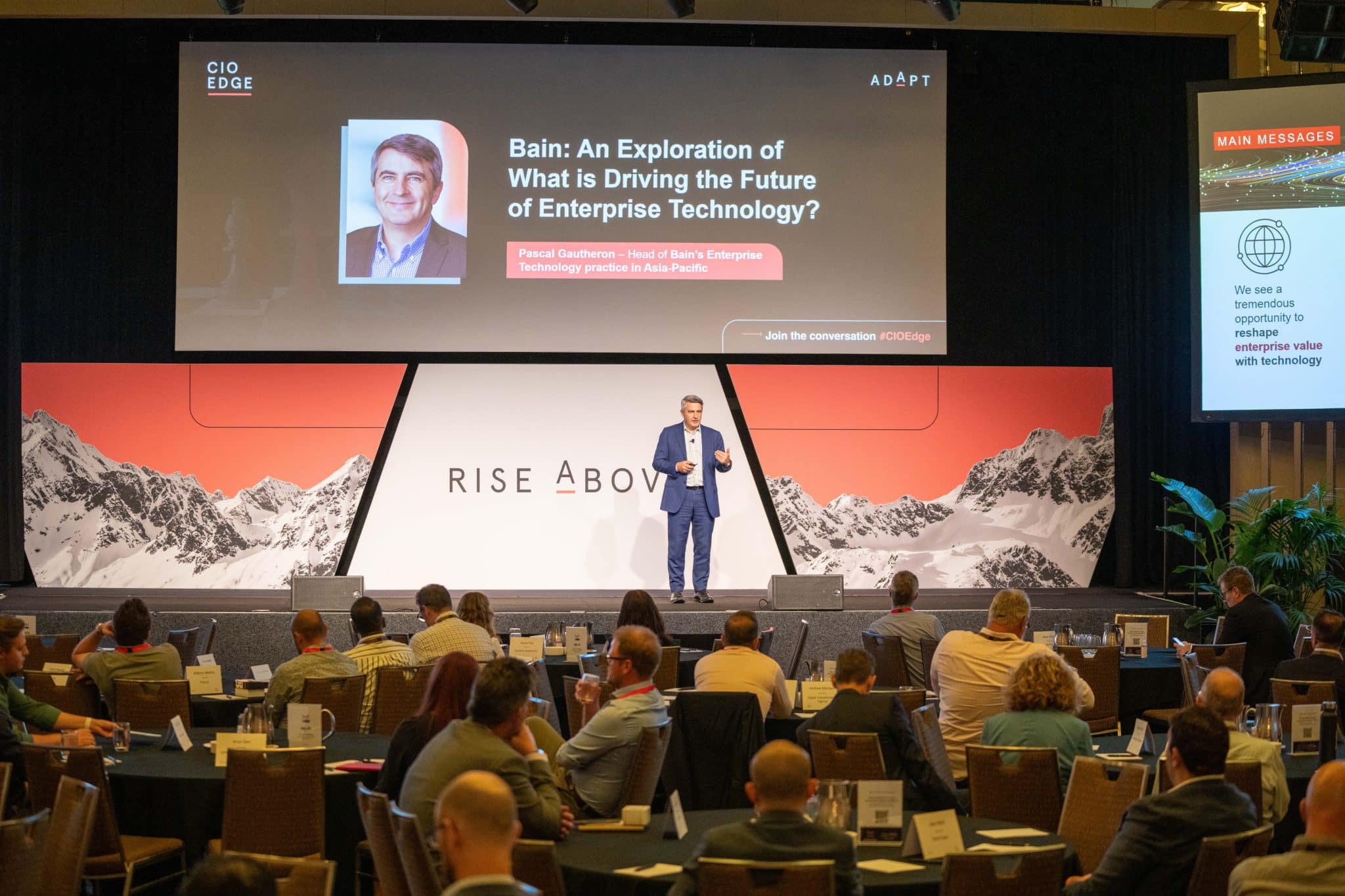In the fourth stage of the Industrial Revolution, where digital, physical, biological and environmental worlds will become interconnected, there will be impacts for organisations to consider around renewable energies, AI, robotic process automation, 5G, IoT, and satellites.
The defining characteristics of impactful emerging technologies are their velocity, systems impact, and augmentation.
At Digital Edge, Futurologist Rocky Scopelliti shares how the most impactful emerging technologies will unlock new business models through on-demand access to staff, community building, and technology-enabled autonomy.
To unlock the full keynote video and access an entire catalogue of ADAPT’s expert presentations, localised research, case studies, downloadable data and community interviews, speak with a Senior Research Consultant today.
Transcription:
We see four distinct features. The first is this velocity. Why is it that these guys can go from nothing to ruling the roost within a really quick period of time?
Our whole notion of time has profoundly changed.
As I mentioned before in that chart, the relationship between demand and supply and time and growth has profoundly changed into this exponential way of thinking.
The breadth and depth, like TransferWise, wasn’t something that was that just stayed in Europe. It’s right across the world now.
So they internationalise very, very, very quickly, very, very rapidly.
The third area is the systems’ impact that the fourth industrial revolution and these kinds of models will have. They’ll traverse industries, they’ll traverse countries, and they’ll traverse all sorts of societies as well.
Then lastly, and most importantly, it’s about this word augmentation. It’s the fusion between our digital-physical worlds that these technologies have the capacity to achieve.
Now, the good news, the Singularity University has been studying exponential organisations in the US for probably about 12 years. I’ve been studying them here in Australia for about 8.”
We now know the DNA of what makes up these exponential models and these exponential organisations.
This is the DNA. This allows them to scale and perform in such ways that are traditional, linear or fixed model simply can’t.
Here are some examples of organisations from the Third Industrial Revolution and the Second Industrial Revolution, which are deemed, exponential models.
Here are some new examples of new organisations that have found their way onto the Australian ASX top 100 in a very quick period of time.
What’s fueling all of this?
Data is the disruptor. When we look at the question of what Australian executives believe is going to be the most disruptive to them technologically over the coming three years, here’s a list of all of the technologies.”
What’s common in all of them? It’s data. I would say here that Australian executives participate in the fourth industrial revolution will be cyber by design.
We are not prepared to step back from cyber and information security, as we can see here. Looking at cyber has been the number one disruptor over the coming years.
To unlock the full keynote video and access an entire catalogue of ADAPT’s expert presentations, localised research, case studies, downloadable data and community interviews, speak with a Senior Research Consultant today.


























